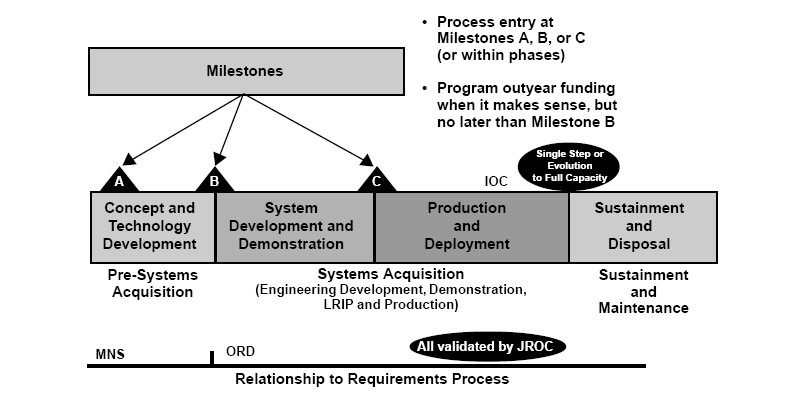|
Time And Materials
Time and materials (T&M) is a standard phrase in a contract for construction, product development or any other piece of work in which the employer agrees to pay the contractor A contractor is a person or company that performs work on a contract basis. The term may refer to: Business roles * Defense contractor, arms industry which provides weapons or military goods to a government * General contractor, an individual o ... based upon the time spent by the contractor's employees and subcontractors employees to perform the work, and for materials used in the construction (plus the contractor's mark up on the materials used), no matter how much work is required to complete construction. Time and materials is generally used in projects in which it is not possible to accurately estimate the size of the project, or when it is expected that the project requirements would most likely change. This is opposed to a fixed-price contract in which the owner agrees to pay the contractor a l ... [...More Info...] [...Related Items...] OR: [Wikipedia] [Google] [Baidu] |
Contract
A contract is a legally enforceable agreement between two or more parties that creates, defines, and governs mutual rights and obligations between them. A contract typically involves the transfer of goods, services, money, or a promise to transfer any of those at a future date. In the event of a breach of contract, the injured party may seek judicial remedies such as damages or rescission. Contract law, the field of the law of obligations concerned with contracts, is based on the principle that agreements must be honoured. Contract law, like other areas of private law, varies between jurisdictions. The various systems of contract law can broadly be split between common law jurisdictions, civil law jurisdictions, and mixed law jurisdictions which combine elements of both common and civil law. Common law jurisdictions typically require contracts to include consideration in order to be valid, whereas civil and most mixed law jurisdictions solely require a meeting of the ... [...More Info...] [...Related Items...] OR: [Wikipedia] [Google] [Baidu] |
Construction
Construction is a general term meaning the art and science of forming Physical object, objects, systems, or organizations."Construction" def. 1.a. 1.b. and 1.c. ''Oxford English Dictionary'' Second Edition on CD-ROM (v. 4.0) Oxford University Press 2009 It comes from the Latin word ''constructio'' (from ''com-'' "together" and ''struere'' "to pile up") and Old French ''construction''. To 'construct' is a verb: the act of building, and the noun is construction: how something is built or the nature of its structure. In its most widely used context, construction covers the processes involved in delivering buildings, infrastructure, industrial facilities, and associated activities through to the end of their life. It typically starts with planning, financing, and design that continues until the asset is built and ready for use. Construction also covers repairs and maintenance work, any works to expand, extend and improve the asset, and its eventual demolition, dismantling or wikt:de ... [...More Info...] [...Related Items...] OR: [Wikipedia] [Google] [Baidu] |
General Contractor
A general contractor, main contractor or prime contractor is responsible for the day-to-day oversight of a construction site, management of vendors and trades, and the communication of information to all involved parties throughout the course of a building project. Description A general contractor is a construction manager employed by a client, usually upon the advice of the project's architect or engineer. Responsible for the overall coordination of a project, general contractors may also act as building designer and foreman (a tradesman in charge of a crew). A general contractor must first assess the project-specific documents (referred to as a bid, proposal, or tender documents). In the case of renovations, a site visit is required to get a better understanding of the project. Depending on the project delivery method, the contractor will submit a fixed price proposal or bid, cost-plus price or an estimate. The general contractor considers the cost of home office overhead, ... [...More Info...] [...Related Items...] OR: [Wikipedia] [Google] [Baidu] |
Subcontractor
A subcontractor is an individual or (in many cases) a business that signs a contract to perform part or all of the obligations of another's contract. Put simply the role of a subcontractor is to execute the job they are hired by the contractor for. It is oftentimes a specialized job such as electrical or HVAC and it is the subcontractor's responsibility to execute the work as instructed. A subcontractor (or sub-contractor) is a company or person whom a general contractor, prime contractor or main contractor hires to perform a specific task as part of an overall project and normally pays for services provided to the project. While subcontracting often occurs in building works and in civil engineering, the range of opportunities for subcontractor is much wider and it is possible that the greatest number of subcontractors now operate in the information technology and information sectors of the economy. One hires subcontractors either to reduce costs or to mitigate project risks. ... [...More Info...] [...Related Items...] OR: [Wikipedia] [Google] [Baidu] |
Fixed-price Contract
A fixed-price contract is a type of contract such that the payment amount does not depend on resources used or time expended by the contractor. This is opposed to a cost-plus contract, which is intended to cover the costs incurred by the contractor plus an additional amount for profit. Such a scheme is often used by military and government contractors to require vendors to incur the risk of cost overruns, and to control costs. However, historically when such contracts are used for innovative new projects with untested or undeveloped technologies (such as new military transports or stealth attack airplanes), it often results in failure if costs greatly exceed the ability of the contractor to absorb unexpected cost overruns. Fixed prices can require more time, in advance, for sellers to determine the price of each item. However, the fixed-price items can each be purchased faster, but bargaining could set the price for an entire set of items being purchased, reducing the time for b ... [...More Info...] [...Related Items...] OR: [Wikipedia] [Google] [Baidu] |
Guaranteed Maximum Price
A guaranteed maximum price (also known as GMP, not-to-exceed price, NTE, or NTX) contract is a cost-type contract (also known as an open-book contract) such that the contractor is compensated for actual costs incurred plus a fixed fee, limited to a maximum price. The contractor is responsible for cost overruns greater than the guaranteed maximum price, unless the GMP has been increased by a formal change order (only as a result of additional scope from the client, not price overruns, errors, or omissions). Savings resulting from unexpectedly low costs are returned to the client. This is different from a fixed-price contract, also known as ''stipulated price contract'' Pawson, O."Stipulated Price Contract" ''Canadian Consulting Engineer'', accessed 14 December 2019 or ''lump-sum contract'', whereby cost savings are typically retained by the contractor and essentially become additional profits. See also * Time and materials Time and materials (T&M) is a standard phrase in a contract ... [...More Info...] [...Related Items...] OR: [Wikipedia] [Google] [Baidu] |
Business Terms
Business is the practice of making one's living or making money by producing or buying and selling products (such as goods and services). It is also "any activity or enterprise entered into for profit." Having a business name does not separate the business entity from the owner, which means that the owner of the business is responsible and liable for debts incurred by the business. If the business acquires debts, the creditors can go after the owner's personal possessions. A business structure does not allow for corporate tax rates. The proprietor is personally taxed on all income from the business. The term is also often used colloquially (but not by lawyers or by public officials) to refer to a company, such as a corporation or cooperative. Corporations, in contrast with sole proprietors and partnerships, are a separate legal entity and provide limited liability for their owners/members, as well as being subject to corporate tax rates. A corporation is more complica ... [...More Info...] [...Related Items...] OR: [Wikipedia] [Google] [Baidu] |
Contract Law
A contract is a legally enforceable agreement between two or more parties that creates, defines, and governs mutual rights and obligations between them. A contract typically involves the transfer of goods, services, money, or a promise to transfer any of those at a future date. In the event of a breach of contract, the injured party may seek judicial remedies such as damages or rescission. Contract law, the field of the law of obligations concerned with contracts, is based on the principle that agreements must be honoured. Contract law, like other areas of private law, varies between jurisdictions. The various systems of contract law can broadly be split between common law jurisdictions, civil law jurisdictions, and mixed law jurisdictions which combine elements of both common and civil law. Common law jurisdictions typically require contracts to include consideration in order to be valid, whereas civil and most mixed law jurisdictions solely require a meeting of the ... [...More Info...] [...Related Items...] OR: [Wikipedia] [Google] [Baidu] |
Pricing
Pricing is the process whereby a business sets the price at which it will sell its products and services, and may be part of the business's marketing plan. In setting prices, the business will take into account the price at which it could acquire the goods, the manufacturing cost, the marketplace, competition, market condition, brand, and quality of product. Pricing is a fundamental aspect of product management and is one of the four Ps of the marketing mix, the other three aspects being product, promotion, and place. Price is the only revenue generating element amongst the four Ps, the rest being cost centers. However, the other Ps of marketing will contribute to decreasing price elasticity and so enable price increases to drive greater revenue and profits. Pricing can be a manual or automatic process of applying prices to purchase and sales orders, based on factors such as: a fixed amount, quantity break, promotion or sales campaign, specific vendor quote, price pre ... [...More Info...] [...Related Items...] OR: [Wikipedia] [Google] [Baidu] |
Procurement
Procurement is the method of discovering and agreeing to terms and purchasing goods, services, or other works from an external source, often with the use of a tendering or competitive bidding process. When a government agency buys goods or services through this practice, it is referred to as public procurement. Procurement as an organizational process is intended to ensure that the buyer receives goods, services, or works at the best possible price when aspects such as quality, quantity, time, and location are compared. Corporations and public bodies often define processes intended to promote fair and open competition for their business while minimizing risks such as exposure to fraud and collusion. Almost all purchasing decisions include factors such as delivery and handling, marginal benefit, and fluctuations in the prices of goods. Organisations which have adopted a corporate social responsibility perspective are also likely to require their purchasing activity to take w ... [...More Info...] [...Related Items...] OR: [Wikipedia] [Google] [Baidu] |





